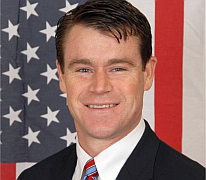 U.S. Senators Todd Young (R-Ind.), Edward J. Markey (D-Mass.), Marco Rubio (R-Fla.), and Tim Kaine (D-Va.), members of the Senate Foreign Relations Committee, last week introduced legislation to ensure that Congress has the legislative authority to review all materials related to so-called “Part 810 authorizations” and is aware when the U.S. government authorizes persons or companies to transfer certain nuclear technologies and services to governments overseas.
U.S. Senators Todd Young (R-Ind.), Edward J. Markey (D-Mass.), Marco Rubio (R-Fla.), and Tim Kaine (D-Va.), members of the Senate Foreign Relations Committee, last week introduced legislation to ensure that Congress has the legislative authority to review all materials related to so-called “Part 810 authorizations” and is aware when the U.S. government authorizes persons or companies to transfer certain nuclear technologies and services to governments overseas.
Part 810 agreements authorize the transfer or nuclear technologies and information related to the production of “special nuclear materials” as defined in Title I of the Atomic Energy Act. Some authorizations, which are approved by the Secretary of Energy, may be non-public and can thus be withheld from Congressional oversight. These 810 authorizations are different than civil nuclear cooperation – so-called “123” – agreements, which are subject to Congressional approval. The Senators are introducing this legislation after revelations that seven undisclosed authorizations were recently granted for companies to engage in nuclear cooperation with Saudi Arabia.
In March 2018 Saudi Crown Prince Mohammed Bin Salman stated in an interview that his country would develop nuclear weapons “without a doubt if Iran developed a nuclear bomb”. Just a few months later, Saudi Arabia’s Foreign Minister Adel Al-Jubeir echoed these comments.
“The transfer of nuclear technology overseas poses a major threat to our security as a nation and demands rigorous Congressional oversight,” said Senator Young. “This bipartisan legislation would ensure that the transfer of nuclear technology or expertise to foreign countries, like Saudi Arabia, cannot move forward without Congressional review. Nuclear technology is too sensitive and the risks are too great to allow for these agreements to move forward in the dark.”
Specifically, the legislation amends the Atomic Energy Act of 1954 to mandate that:
- The Secretary of Energy with the concurrence of the Secretary of State submit a quarterly report to Congress summarizing any 810 authorizations reviewed and approved or rejected during the previous quarter. The Energy Department must also submit all 810 applications submitted to the Department for review.
- The DOE to retroactively turn over all 810 authorizations and applications dating back to 2015 when DOE most recently revised its 810 application review process.
- Provide Congress the authority to request that any 810 application-pending or approved-by turned over to Congress within ten days.
A copy of the legislation can be found HERE.













